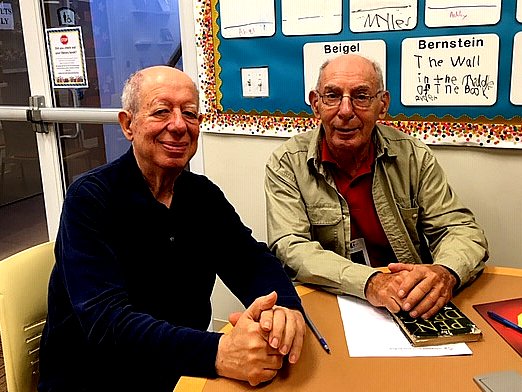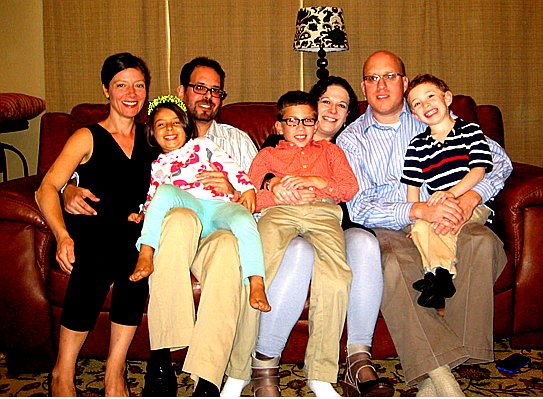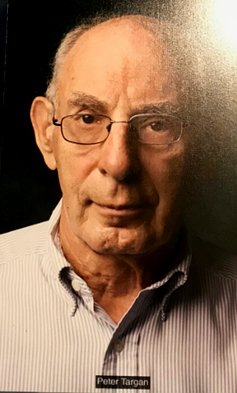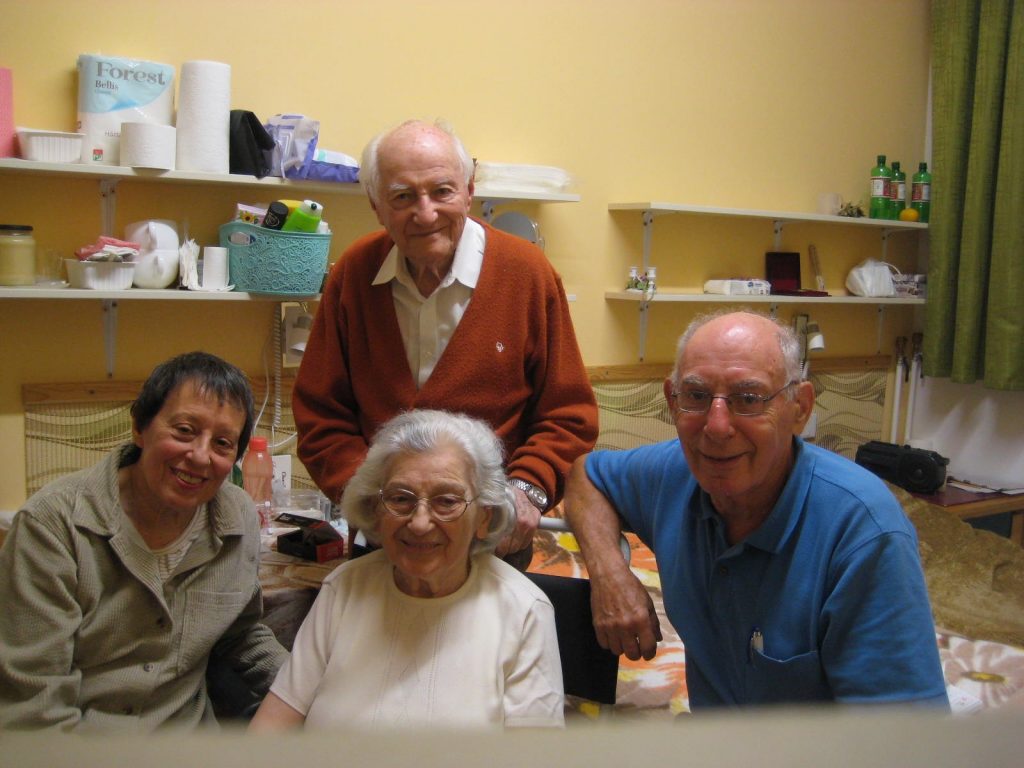?Did My Early Jewish Education Fail


The Slice of Jewish Life
Neither of my parents had been raised in the strict Jewish tradition. My father held a law degree and my mother was a piano and singing teacher. I was their only child. We had a modest apartment in the Jewish district in Budapest (VII. District), walking distance to my all Jewish, but public, elementary school and to the monumental and famous Dohány Synagogue. Both my parents were raised in Pécs, a sizeable ancient town in SW, where my maternal grandparents, my father’s two older sisters and many other relatives were living before the Shoah. They all attended the beautiful “Neolog” synagogue and were active in the community’s social and cultural lives, but they considered themselves as “Hungarians of the Mosaic faith.”
It was automatic that they sent me to the elementary school in Wesselényi Street, where our all boys’ class had about 60 kids and a spinster for a teacher with a generally nasty disposition. I didn’t like to go to school as it was boring and strict, but there was no other option in 1942.
Our relatives from Pécs and the surrounding area were deported to Birkenau on July 4, 1944. Only two, my father’s sister and a young cousin of my grandmother returned. Both my parents had been driven toward Germany near the end of 1944; neither of them returned. I survived through a sequence of lucky breaks and the kindness of a few people.
Following the war I fervently hoped for the return of my parents and was encouraged in this by my Aunt Agnes, my mother’s sister, who raised me for about a year. She had converted to be a Roman Catholic out of opportunism around 1940, but she was treated by the Fascists like all Jews and survived in the Budapest Ghetto. We were homeless and later we were living in the abandoned home of cousins in a village, Bonyhád. The cousins all had perished. I was in third grade and according to the law, I had to receive religious instructions although I was the only Jewish child in my school. They sent me to the ritual slaughterer of the local Ultra-Orthodox community. We hated each other at first sight as I knew little Hebrew and was wearing shorts and sandals, while the local yeshiva boys wore Hassidic outfits. It would be an overstatement that I learned anything of value from this nasty old man.
I landed under the wings of my Aunt Böske, a widow, in Pécs, in 1947. She sent me to a R.C. school, run by Cistercian monks. The few Jewish kids were constantly molested by the other boys and often by the monks as well. I abhorred the place. The few Jewish boys were assigned to be instructed by Rabbi Jozsef Schweitzer (z”l), a young and pleasant man, who later became the Chief Rabbi of Hungary and a highly respected scholar and professor at the Rabbinical Seminary. – But it was a lost cause. By then I had lost faith in the return of my family and had no interest in lectures about God’s will and who knows what He meant by allowing the past events. – With three other boys we had our Bar Mitzvah, which I found to be a meaningless exercise.
In 1947, my Aunt Böske sent me to join a local Jewish Boy Scout Troup, where I had some friends, but immensely disliked the militaristic leadership and the associated training. The communist government banned both the Cistercian school and the scout movement. I was sent to a public school – with one other Jewish boy in my class and one more in 8th grade, but the scouts were transformed into a Zionist youth group, HaShomer Hazair, a secular bunch. We were joined by girls and it was more fun. Soon, it was also banned. The leaders were preparing us for Aliyah as part of the Bricha, but my moment arrived in the spring of 1949, Aunt Bőske nixed my escape. – I was done with religion, although Marxism never impressed me.
After high school, in 1954, I was accepted at the Technical University in Budapest. During the 1956 Uprising I was quite active, but seeing the awakening of previously relatively silent anti-Semitism, I escaped to Austria by myself and in 1957 arrived in New York City. My father’s older brother, Uncle Kornel and his family had been living in the Boston area since 1950. They were survivors from Yugoslavia, who had been prisoners of the Italians, then spent two years with Tito’s partisans and five years as refugees in Italy. Uncle Kornel, an engineer, was employed by a reform temple in Belmont, where I was received with kindness by the congregation and a member found me a job within a week at MIT. But I followed in my cousin, Van’s steps and received a scholarship at Purdue University, where once again, the Jewish community, and especially Rabbi Gedalyah Engel of Hillel, gave me a lot of financial and emotional support. Despite all their generosity and persuasion, I remained a secular Jew to this day.
My wife had no Jewish education, although her family strongly identified as Jews. We were married by a Reconstructionist rabbi in NYC in 1964. We sent our two sons to a Hebrew day school hoping they would learn Modern Hebrew. It was a waste of time… Both boys were Bar Mizvah-ed. Both married Jewish women. Our older son, Josh, has no interest in formal Judaism and his daughter has a menorah and a Christmas bush. Aaron is active in his Jewish community and his boys, ages 13 and 9, attend a Jewish community school. Noah will have his Bar Mitzvah in Jan. 2019.
Despite my disconnection from rituals, each year at Pesach we celebrate freedom at Seder with about 20 of our dear friends and read our own version of the Haggadah. People ask me why I fast on Yom Kippur. The answer is simple: I am a member of the Jewish people and fasting clears the mind and makes me feel part of the tribe as well as pay respect to our martyrs.
I am a volunteer at the Holocaust Documentation and Education Center and speak about the Holocaust to children and even to adult groups. I participated in the March of Living twice accompanying first a group of teenagers and then adults. I plan to participate again this year.
Ruth Glasberg Gold and I founded a Child Survivors of the Holocaust group in 1990. It is a support group. Although everyone is Jewish, the activities are entirely secular and cultural.
This is my story…
Dr. Peter Tarjan Today
Peter in Hungary with his cousins 2017
Listen to Peter's Story:
הזוית האישית
Peter Tarjan took part in a program run by the Jewish Genealogical Society of Greater Miami. We are good friends and hope to remain so! Yoram is an inspiration to me.
מילון
Orthodox JewTerm used to describe the traditional branches of Judasim as a collective.
ציטוטים
”"The spring of 1944, Nazis took over Hungary and the Jewish school was closed." “







